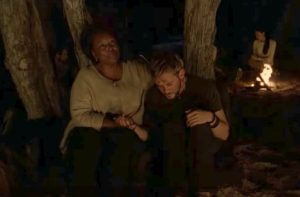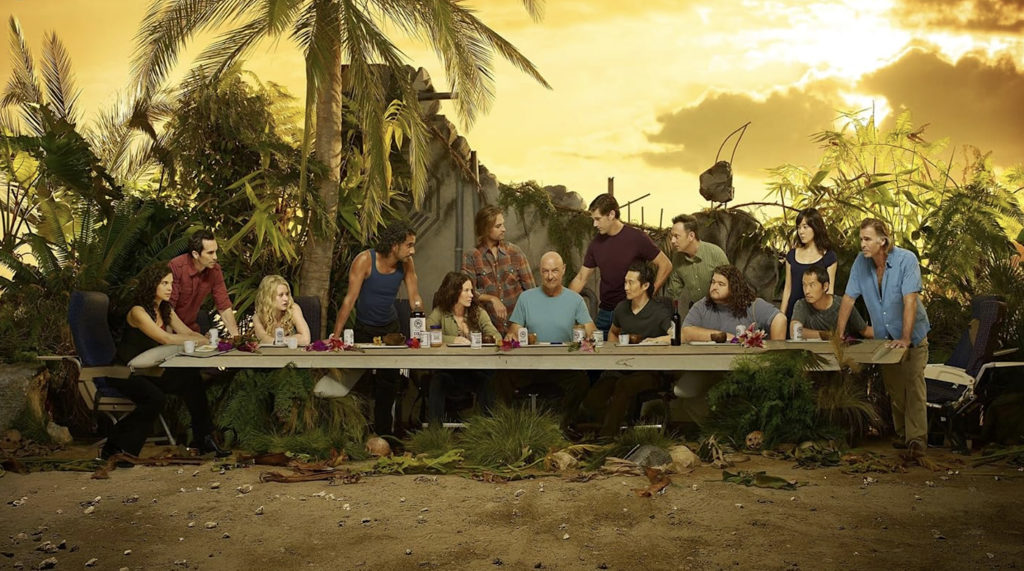It was a time, my children. A time when a television series might have as many as 25 episodes in a season and — even stranger — the gap between those seasons was measured in months, not years. It was also a time when a smart, entertaining television series was born and lived at that pace, directed, not at an algorithmic niche with the virtue signaling to prove it, but at a broad general audience and was wildly successful at it.
That, my children, was the age of “Lost.”
This year marks the 20th anniversary of the beginning of the show’s six season, 121-episode run on ABC. Since then, it’s been available on DVDs and various platforms. It’s currently on Disney+ and Hulu, and on July 1 it returns to Netflix, too.
I was a bit of a latecomer to “Lost,” initially put off by a remark in a preview that was something like, “So, the entire UCLA volleyball team crashes on an island, and? …” I eventually caught up — maybe during summer reruns (yes, that was a thing too, children) and was hooked.
You’d be hooked, too, if you watched the first episode: without a question one of the finest pilots ever made, beginning with a single eye-opening, the gradual consciousness of screaming in the background, the heartbreaking and terrifying aftermath of a plane crash, a collection of intriguingly distinctive survivors and ending, somehow, with a monster in the jungle. I mean, what was this?
“This” was indeed, something else. Something unique to television at the time, and since. An adventure that straddled some space between science fiction and fantasy, a drama with sharp comedic elements, and an absorbing, albeit frustrating mystery. It was even an exploration of faith, in its broadest sense.
Most of all, though, “Lost” is about people. I’m going to maintain that the deep, continuing appeal of “Lost” lies, not in monsters or numbers or secrets, but in its profoundly humane vision, embodied in the adventure, the conflict, the heroism, the sorrow, and the winning, diverse cast of characters, strangers but not, in communion without even knowing it.
Quite simply, “Lost” is us.

A striking promo for “Lost” that aired in England in 2005 featured the cast, artfully made up and costumed, dancing in artsy ways, the burning plane behind them. The cast voice-overs echo: one of us is a sinner … one of us is a saint… all of us are lost.
And that, in my mind, is it. That’s the appeal. That’s the reason why, under YouTube recordings of Michael Giacchino’s moving, perfect soundtrack to the show, so many comments (e.g., “I hear the first few bars and I’m in tears...”) are about the theme.
For who are we anyway but creatures dropped, through no choice of our own, on an island floating in the sea of the universe? There’s a weird, undefinable, unending mystery churning around us. All kinds of crazy things are happening, and who knows why? We sense a purpose behind the chaos, though we find connection, and in the mystery and suffering we even find redemption.
And so, yes, here we are, brought to this place in this moment by this strange combination of the flow of life, chance, what’s been done to us, and our own choices. What are we going to do about it? How are we going to live now?
There’s a scene in a first season episode (“Whatever the Case May Be”), in which two characters are sitting on the beach (of course). Charlie is despondent about something he’s done. Rose, whose husband, rationally speaking, did not survive the crash, but who hasn’t given up hope, is comforting him. Charlie begins to weep:
CHARLIE: Help me.
ROSE: Baby, I’m not the one that can help you.… Heavenly Father, we thank you. We thank you for bringing us together tonight, and we ask that you show Charlie the path. …
What a striking exchange, not just because Rose prays and acknowledges God’s power to help, but also by what she prays. Consider it. She begins, not with questions or complaints, but with thanks. There she is, crashed on a weird island with no sign of rescue, life as she knew it gone, and what’s she got to say to God? Thank you for this.
All of us are lost … yes we are. And what are we going to do about it? What, in the midst of this mystery of good and evil, choice, and chance? That’s what this strange show, at its core, asks us to wonder.
Now, I don’t want to oversell this. We’re not talking Bergman here (or maybe that is a selling point to you?) Along with the wild entertainment, banger plot twists, cliffhangers, and opening scenes, “Lost” has its fair share of confusing storylines, dead ends, convoluted philosophies, and unanswered questions. That said, I’ll gladly die on this hill defending “Lost” against the caricature of “That old show where everyone hated the finale, right?”
Because no, everyone didn’t hate the finale, and when you tend to the real mystery of the show, beyond the Others and the numbers and the hatch, all the important questions are, in fact, answered, as showrunner Damon Lindelof explained in an oral history of the show:
“I feel that, ultimately, the fundamental question that I’m most interested in exploring is whether there’s a purpose behind suffering and, more importantly, do you have to suffer to achieve a level of grace?”
Author’s note: A feature-length documentary on the show, “Getting Lost,” is currently in production, with a September 2024 release planned: www.instagram.com/gettinglostdoc.

